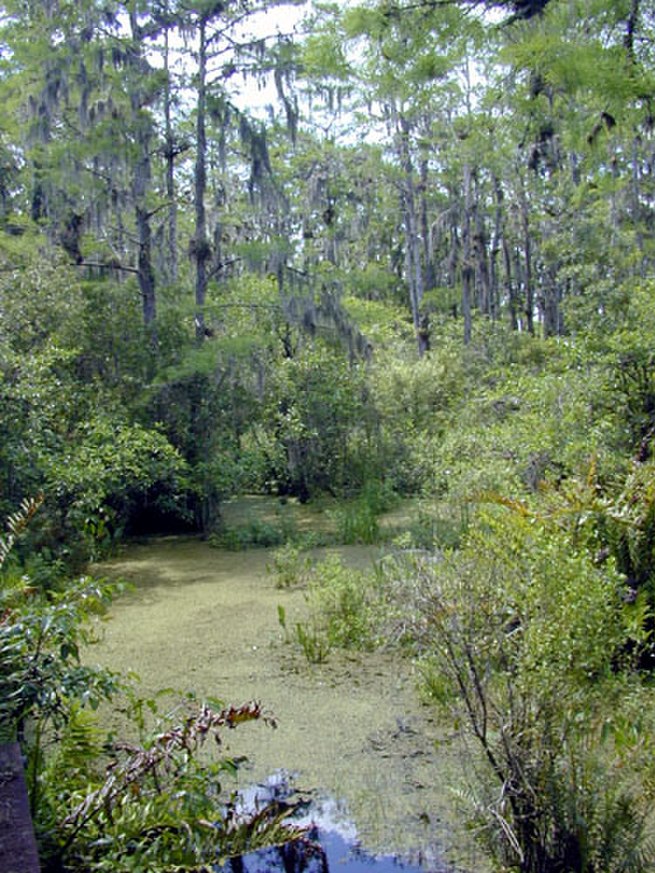Main Difference
The main difference between Swamp and Bayou is that the Swamp is a wetland with trees and Bayou is a Franco-English term for a body of water typically found in flat, low-lying area.
-
Swamp
A swamp is a wetland that is forested. Many swamps occur along large rivers where they are critically dependent upon natural water level fluctuations. Other swamps occur on the shores of large lakes. Some swamps have hammocks, or dry-land protrusions, covered by aquatic vegetation, or vegetation that tolerates periodic inundation. or soil saturation. The two main types of swamp are “true” or swamp forests and “transitional” or shrub swamps. In the boreal regions of Canada, the word swamp is colloquially used for what is more correctly termed a bog, fen, or muskeg. The water of a swamp may be fresh water, brackish water or seawater. Some of the world’s largest swamps are found along major rivers such as the Amazon, the Mississippi, and the Congo.
-
Bayou
In usage in the United States, a bayou ( or , from Cajun French) is a body of water typically found in a flat, low-lying area, and can be either an extremely slow-moving stream or river (often with a poorly defined shoreline), or a marshy lake or wetland. The term bayou can also refer to a creek whose current reverses daily due to tides and which contains brackish water highly conducive to fish life and plankton. Bayous are commonly found in the Gulf Coast region of the southern United States, notably the Mississippi River Delta, with the states of Louisiana and Texas being famous for them. A bayou is frequently an anabranch or minor braid of a braided channel that is moving much more slowly than the mainstem, often becoming boggy and stagnant. Though fauna varies by region, many bayous are home to crawfish, certain species of shrimp, other shellfish, catfish, frogs, toads, American alligators, American crocodiles, herons, turtles, spoonbills, snakes, leeches, and many other species.
-
Swamp (noun)
A piece of wet, spongy land; low ground saturated with water; soft, wet ground which may have a growth of certain kinds of trees, but is unfit for agricultural or pastoral purposes.
-
Swamp (noun)
A type of wetland that stretches for vast distances, and is home to many creatures who have adapted specifically to that environment.
-
Swamp (verb)
To drench or fill with water.
“The boat was swamped in the storm.”
-
Swamp (verb)
To overwhelm; to make too busy, or overrun the capacity of.
“I have been swamped with paperwork ever since they started using the new system.”
-
Swamp (verb)
To plunge into difficulties and perils; to overwhelm; to ruin; to wreck.
-
Bayou (noun)
A slow-moving, often stagnant creek or river.
-
Bayou (noun)
A swamp, a marshy (stagnant) body of water.

